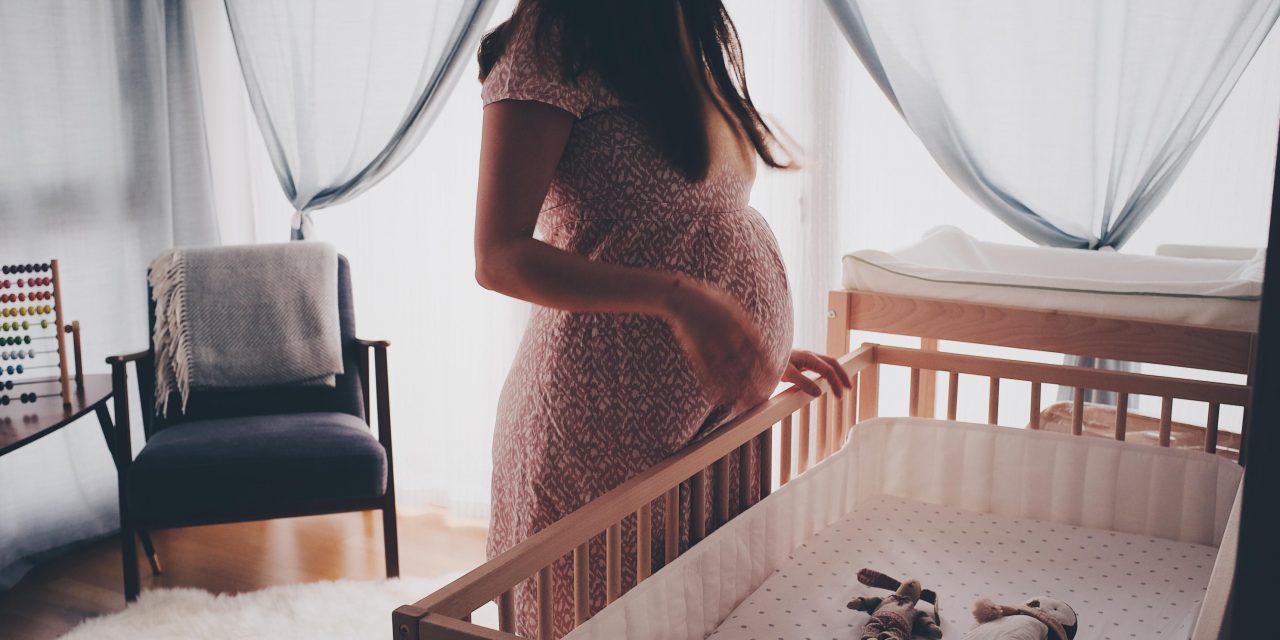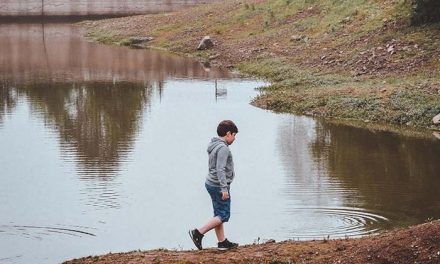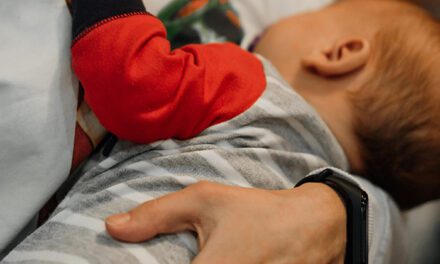Having a child is a big step and comes with many changes and adjustments to one’s life. It requires you to prepare yourself both structurally and emotionally. While it’s important to keep the ‘big things’ in mind, it’s easy to overlook and forget the ‘little things’ – those tiny everyday nitty gritties that are so crucial to get right as one prepares to bring a baby into one’s home. One of these is childproofing! A parenting tip, childproofing your home is essential to ensuring your child’s safety, and this guide can tell you exactly how to go about it.
Is Childproofing Your Home Essential?
Household hazards are still one of the leading reasons for babies being rushed to the ER. Underestimating the danger that simple objects pose shouldn’t be a mistake you make since the consequences are deadly. Ideally, you should begin to babyproof your home before the due date, alongside looking for a pediatrician. But whether before or after, get it done at some point.
A lot of these precautions become crucial a few months after your baby is born. At the 5 – 6-month mark, babies start developing motor abilities, their curiosity heightens, and they begin to crawl and move around their large playground i.e your home. At this milestone stage, it’s an absolute must that your house is adequately childproofed. Kids love touching everything, shoving whatever comes their way inside their mouth and crawling everywhere. You wouldn’t want your child to accidentally injure themselves – an act that you can most certainly avoid.
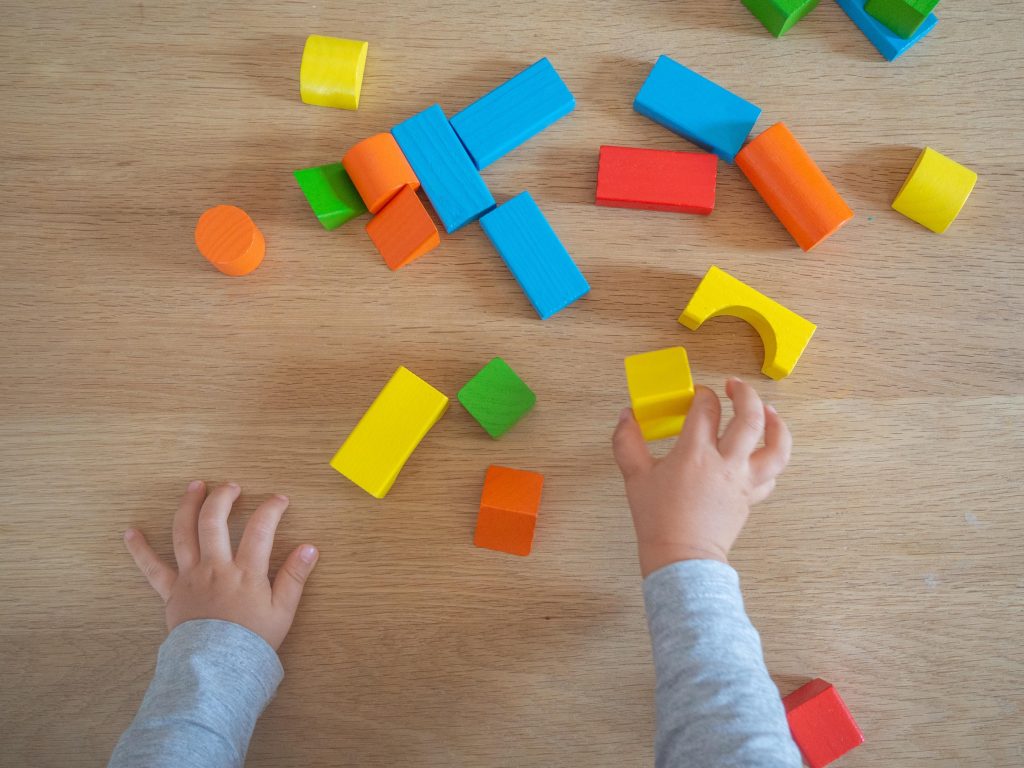
There are several things that can harm your baby, including seemingly harmless bocks!
Use Outlet Covers
These are pieces of plastic that get plugged into electrical outlets. This prevents kids from playing with electrical sockets and reduces the risk of electrocution. Electrical sources are one of the most obvious hazards and we all know that it’s best to secure our outlets. But while you are securing all outlets, don’t forget about all the wires lying around. It is important to make sure that all exposed wiring is covered and the cables are neatly tucked out of the way.
Secure Your Cupboards And Drawers
Babies love drawers. Anyone who has seen a toddler playing around knows that they love opening and closing things and climbing on top. So, make sure you latch all cupboards, doors, and drawers within a baby’s reach. This helps to avoid pinched fingers or them going off exploring alone. Locked cabinets and drawers prevent children from gaining access to dangerous objects, especially knives, sharp tools, cleaning chemicals, medicines, etc. If you have older kids in the house, get them to latch their cupboards and drawers as well, especially the ones that contain toys.
Keep All Cleaning Supplies Out Of Reach
Make sure that all the cleaning chemicals – bathroom, kitchen, and clothes – are out of reach of the child. Childproof cabinet locks are not always foolproof, and a clever toddler can at times break them. Therefore, storing the chemicals out of reach will prevent such accidents even if one forgets to lock the cabinet in a rush.
Avoid Hanging Cords On Blinds/Curtains
Watching the dangly cords swish about can be particularly enticing to a child. Since they are mostly near the baby’s eye level, it isn’t hard for a child to start playing with them. But these dangling blind cords can pose a significant risk of strangulation. Plus, a few hard tugs could bring your curtain rod crashing down onto your little one.
To babyproof your windows, choose blinds that don’t have cords or have retractable cords. Better yet, get a few hooks that you can wrap the cords around to prevent them from dangling.
Keep An Eye Out For Heavy Objects
An important developmental milestone is achieved when babies start to move, roll and play on the floor. However, this also increases the danger of accidents. A useful tip for parents, especially first-time parents, is to get on the floor and look from their baby’s point of view. This way you’ll notice what objects are easily within their reach and can better plan how to move objects or even furniture around.
It is also important to anchor your furniture, refrigerator, television, and any such large objects to the wall. This ensures that these things don’t topple over as babies try to climb on top of everything. It is also important to get lamps and other decorative items away from furniture surfaces. Don’t forget to block access to all floor heaters and radiators!
Gate Your Stairs
Parents need to be cautious about stairways and should place safety gates at the top of the stairs. We also recommend closing and locking doors that lead to stairwells. Again, this step is important around the 6-month mark when your baby is starting to crawl. Securing your stairs isn’t as necessary before this time, though it is always better to get a head start on putting these provisions in place earlier. Semi-permanent gates are handy as you can screw them into place, and they don’t fall over. They also don’t have that troublesome bar at the bottom that you can topple over.
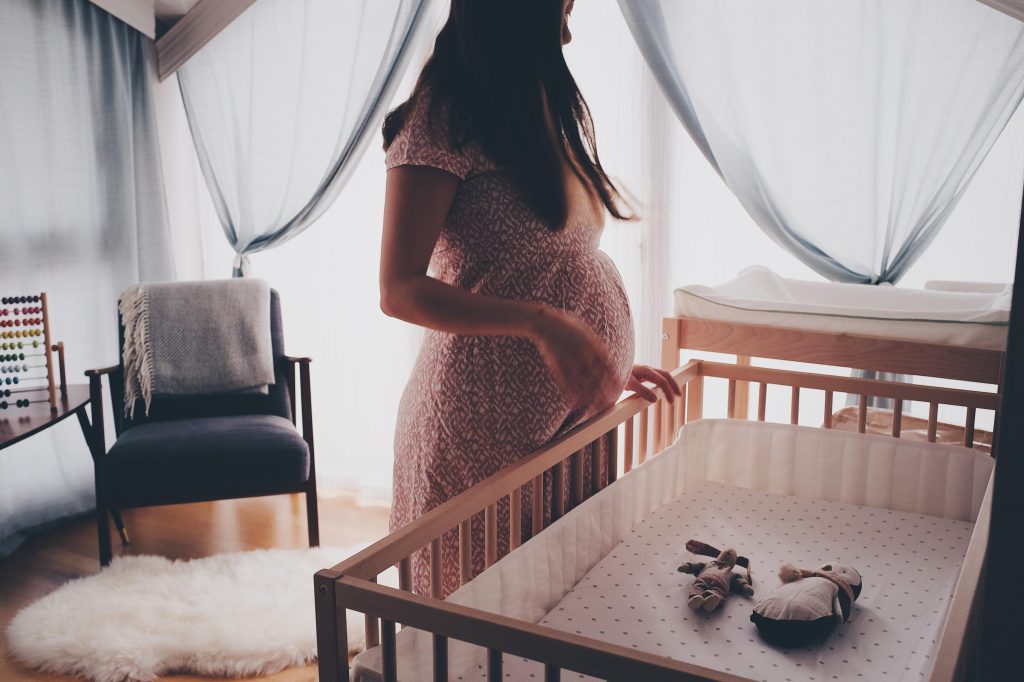
It can be a good idea to start with babyproofing the nursery before your due date.
Beware Of Sharp Corners
All corners around your house need to be secured with easily available corner guards. Tables, cabinets, sofas, chairs – anything with sharp corners and that your baby can climb or grab must be secured. Also, anchor all tall and narrow furniture pieces to the wall. Remember those L-shaped brackets that you throw away each time they come with a new piece of furniture? Well, they are actually useful and will be excellent for anchoring your furniture. Sure, it isn’t going to make your living room the prettiest but it will definitely make it safe and baby-friendly.
Lock Your Windows
This is an obvious one – windows are a major accident risk, especially if your child can stick their head/body out of it. Windows on the lower level need to be secured and locked. Your child can also maneuver windows with levers that raise up, or they could injure them by sliding downwards. Make sure that your windows can’t be opened wide enough for your child to crawl through or stick their head out. You should also repair any damaged or broken windows right away.
Get A Stove Guard
Ideally, you should secure your kitchen door so that your toddler doesn’t wander in. A toddler in a kitchen without supervision is a recipe for trouble. Stoves can be a hazard for kids as they can get burnt while the stoves are on. They could also turn on the burners while playing around, leading to serious burns or gas leaks. A stove guard keeps your stove safe from your curious toddler. In addition, use the back burners when cooking and keep the handles/knobs away from the front.
Special Check On The Nursery
Your baby’s room will be their sanctuary, especially in the early months. So, it’s important to secure this room particularly well. Place all baby wipes and supplies away from the baby’s reach. Make sure the crib is away from windows, heaters, floor lamps, cords, etc. As your baby grows, ensure you secure the furniture to the wall so that it can’t tip over. Try and place rugs on the floor, especially if your floors are slippery.
Even a crib can be a hazard to a growing child. Make sure that none of the slats are too wide in case your baby gets their hand, or worse, their head stuck in between. Once your baby is old enough, make sure that mobiles and danglers hanging above the crib are taken off.
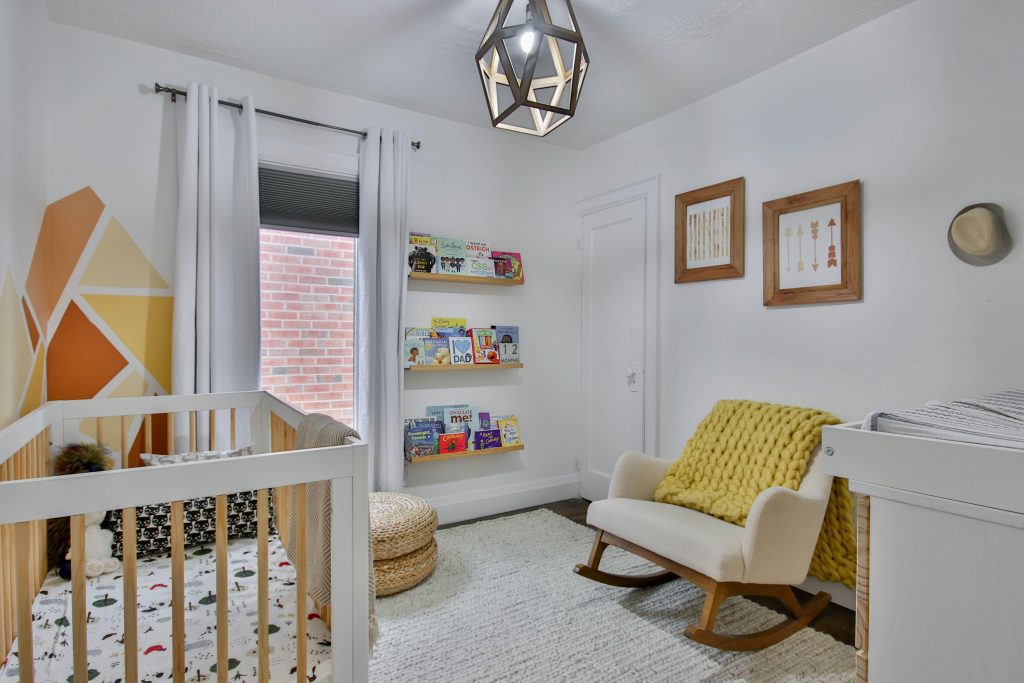
Securing your baby’s room is an essential part of childproofing your home.
Conclusion
With a newborn comes many additional responsibilities that we, as parents, must be aware of! We can only do so much, but being cognizant of our surroundings helps reduce the weight on our shoulders. Childproofing can seem overwhelming, but it’s always better to feel safe than sorry. Even if you’re starting from scratch, a few simple steps go a long way! The ImmunifyMe app helps you with this mammoth task of parenting, while also putting you in touch with professionals in the same field. We’re here to make life easier for you!
FAQs On Childproofing Your Home
What Does Childproofing Your Home Mean?
The act of making your home a safe environment for your baby by keeping all harmful objects out of reach, and reducing risk for your child is called childproofing. It can be accomplished by parents or professionals even, by restricting children to safe areas, and also preventing them from harm. Acts such as covering electrical sockets, keeping sharp objects at higher levels, taping sharp corners, etc. count as childproofing.
When Should You Childproof Your Home?
A good time to start childproofing your home is usually 3 months before your due date, so you also get used to a new safe environment, and also since some childproofing activities might take time. Once your baby crosses the 6-month mark, you will need to do a second round of baby proofing to make sure your home is now safe for a baby on the move!
What Products Are Available For Childproofing?
Products such as child-resistant packaging and locks, safety gates, smoke alarms, corner and edge bumper covers, carbon monoxide detectors, window fasteners, safety latches and locks, anti-scald devices, electrical outlet covers, safety tassels, and door stoppers help in childproofing your home for your baby’s safety, and help prevent accidents.
How Can I Make My Home Baby-Safe?
A few things you can do to make your home safe are getting an alarm system, installing security cameras, adding window sensors, adding security stickers and signs, turning old phones into cameras, taping edges and corners, softening hard spaces, and more. There’s never enough done when it comes to the safety of your baby!

